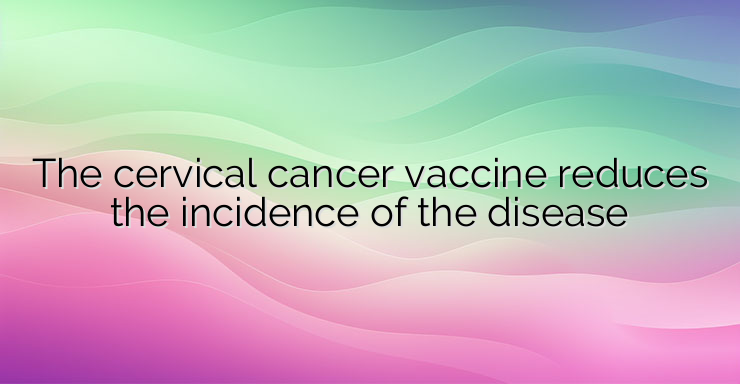Cases of cervical cancer have notably fallen among women in Britain who have been vaccinated against the papillomavirus infection, according to a study published in the November 3 issue of The Lancet. Papilloma virus infection is the real cause of this cancer. The study provides the first direct evidence of the effect of vaccination against human papilloma virus – HPV, with the bivalent vaccine on the incidence of cervical cancer, the authors of the study summarized. Cervical cancer is caused by human papillomavirus infection, which is sexually transmitted. Vaccines against the causative agent have been available since the mid-2000s. That’s why many countries started a campaign with adolescents, the idea being to get them vaccinated before they reach an age where they are sexually active. This is the case in France, which even this year expanded the campaign and now also administers the vaccine to boys, although the coverage rate remains much lower than expected. Until now, the efficacy of vaccines against the infection itself and against the development of precancerous lesions was well known. But the data is less precise about the incidence of reported cancers. This is the contribution of the Lancet study. According to the findings of the study, it was found that there was a significant reduction in the incidence of cervical cancer among women eligible for the vaccination campaign in the UK, which started in late 2000. This reduction, measured in terms of the proportion of cases in previous generations, was particularly noticeable in females who were vaccinated early, at 12 or 13 years of age. In recent years, cervical cancer has almost disappeared These conclusions have limits. Even without vaccination, researchers expected to diagnose only a limited number of cancers in this age group, which today does not exceed 25 years. Therefore, they emphasize that it will be necessary to continue the study of cancer incidence in the coming years. Furthermore, in order to carry out long-term follow-up, the study only looked at women who had benefited from the UK campaign since its inception. However, at that time, the vaccine produced by the GSK laboratory was used. The vaccine has since been replaced by that of the American company Merck, and studies must be continued to draw conclusions about the effect of the administration of both vaccines. Sources: https://www.thelancet.com/journals/lancet/article/PIIS0140-6736(21)02178-4/fulltext www.lemonde.fr


Leave a Reply